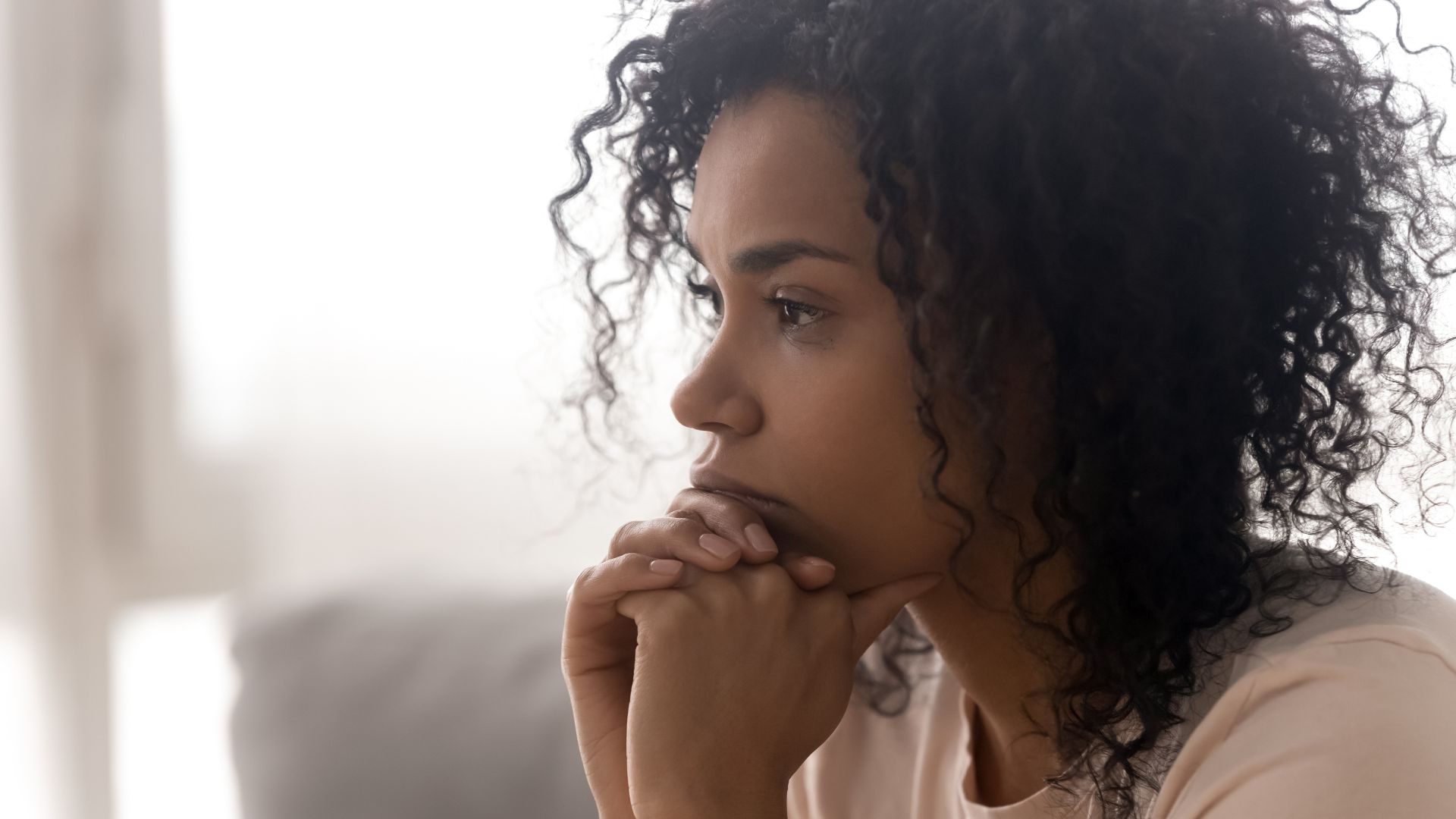Tools To Manage Anxiety – Harnessing Inner Calm

Anxiety is an impactful mental health issue in our society today. Fear and anxiety can be difficult emotions to manage. Rushing from one event to the next, meeting deadlines, and juggling constant interruptions throughout our day can lead to an overwhelming sense of stress, fear, and worry.
You may be one of the many who have suffered from anxiety since childhood. You may be anxious about life in general for no particular reason. Or, you may find yourself avoiding social situations or interactions to avoid feeling tense, shaky, or fatigued.
According to the Anxiety and Depression Association of America, anxiety affects 40 million adults in the United States alone. These numbers highlight a critical need for effective tools and strategies to manage anxiety symptoms.
Understanding Anxiety and Its Symptoms
Anxiety, a familiar yet often misunderstood aspect of human experience, can be both a normal and overwhelming presence in our lives. For instance, mild anxiety about an upcoming test may motivate us to study. However, extreme feelings of anxiety after becoming very familiar with the test material to the extent of losing sleep, may indicate a problem.
Some elevated apprehension or fear of entering a dark alley alone may keep you safe by changing your mind about entering the dark alley. However, the extreme fear of leaving one’s home may indicate something more drastic. Trauma from childhood or recent events may certainly cause present-day symptoms of irrational fears and worries.

Are you a student struggling with anxiety? Our Tips on College Adjustment might come in handy.
Symptoms of anxiety can vary widely but commonly include:
- difficulty concentrating
- difficulty sleeping
- irritability
- fatigue and/or exhaustion
- muscle tension
- repeated stomach aches or diarrhea
- sweating palms
Symptoms of panic disorder may include:
- shaking and/or sweating
- rapid heartbeat
- numbness/tingling of different parts of the body
- sudden, repeated attacks of intense fear
- feeling like you are out of control
- intense worry about when the next attack will happen
Symptoms of social anxiety may include:
- feeling highly anxious in the company of others and having difficulty expressing yourself with them.
- self-consciousness in the presence of others
- significant concern about feeling humiliated, embarrassed, or rejected
- fear of being judged by others
- worrying for days or weeks before an event where others will be in attendance
- avoiding places where there are other people
- having a hard time making and keeping friends
- blushing, sweating, trembling, feeling nauseous or sick around others
Read more about Social Anxiety.

Each individual experiences anxiety differently, with unique triggers and symptoms. Recognizing these personal patterns is a crucial step in managing anxiety.
Understanding personal anxiety patterns also involves recognizing the physical sensations and thoughts that accompany anxious episodes. This awareness can provide valuable insights into the underlying causes of one’s anxiety and pave the way for more targeted and effective management strategies.
Effective Tools for Anxiety Management
In managing anxiety, it is crucial to have a toolkit of effective strategies that can be used to alleviate symptoms and improve overall well-being. Research has shown that various techniques, from deep breathing exercises to lifestyle modifications, can significantly impact anxiety levels. Here, we delve into these anxiety tools, grounded in scientific studies, to offer a comprehensive guide for managing anxiety.
- Deep Breathing and Breathing Exercises:
- Deep breathing is an essential tool for anxiety management. Breathing techniques like the 4-7-8 method help shift the body from stress to relaxation, reducing stress hormones and physical symptoms of anxiety.
- Progressive Muscle Relaxation:
- This technique, involving tensing and relaxing muscle groups, is proven to alleviate muscle tension and reduce chronic anxiety, promoting a sense of calm.
- Meditation and Mindfulness:
- Regular mindfulness meditation, focusing on present-moment awareness, can significantly disrupt anxious thinking and instill a balanced mental state.
- Gratitude Journaling:
- Writing about positive life aspects in a gratitude journal can shift focus from distress to positivity, gradually reducing anxiety symptoms.
- Physical Exercise:
- Engaging in activities like a brisk walk for 20-30 minutes releases endorphins, improving mood and reducing anxiety levels.
- Therapeutic Techniques:
- Cognitive Behavioral Therapy (CBT) and other behavioral therapies are effective in treating anxiety disorders. Using tools like psychoeducation videos and questionnaires can also aid understanding and coping.
- Lifestyle Modifications:
- Incorporating anxiety-reducing activities like coloring books in your everyday life and managing your diet for stable blood sugar levels can significantly help in managing anxiety attacks.
Each of these helpful tools offers a pathway to manage anxiety and improve daily life. It’s important to remember that anxiety management is a personal journey, and what works for one person may not work for another. Consulting with a mental health professional can provide tailored advice and support.

Treatments for Anxiety Disorders
Over the past 10-15 years, treatments for anxiety disorders have seen significant advancements, with a wide array of effective strategies now available to help reduce symptoms and improve quality of life. Evidenced-based treatments encompass various therapeutic approaches, each backed by research and studies, demonstrating their efficacy in keeping anxiety under control. A skilled therapist can play a pivotal role in guiding you through these options to find the most suitable techniques for your individual needs.
Advancements in Anxiety Treatments
- Recent decades have witnessed a substantial evolution in the treatment of anxiety disorders, with a focus on evidence-based strategies.
- According to the American Psychological Association, therapies such as Cognitive Behavioral Therapy (CBT) and Dialectical Behavioral Therapy (DBT) have shown significant success rates in treating anxiety disorders.
Evidenced-Based Treatment Strategies
- Mindfulness Practice:
- Mindfulness practice, often incorporated in therapies like DBT and Acceptance and Commitment Therapy (ACT), focuses on present-moment awareness, which has been proven to reduce anxious thoughts and feelings.
- Studies indicate that regular mindfulness practice can decrease the intensity and frequency of anxiety symptoms.
- Cognitive Behavioral Therapy (CBT):
- CBT is a highly effective treatment for various forms of anxiety disorder, including social anxiety and generalized anxiety disorder.
- It works by changing negative thinking patterns and behaviors that contribute to anxiety, with research showing significant improvements in 60-70% of anxiety sufferers.
- Acceptance and Commitment Therapy (ACT):
- ACT combines mindfulness strategies with commitment and behavior-change strategies to increase psychological flexibility.
- Studies have shown that ACT is effective in managing anxiety by helping individuals accept their anxious thoughts rather than fighting them.
- Relaxation and Meditation Techniques:
- Techniques like deep breathing and progressive muscle relaxation help in reducing muscle tension and stress levels, common physical manifestations of anxiety.
- Regular meditation practice, even for 10-15 minutes a day, can significantly reduce the symptoms of anxiety.
- Response-Prevention Strategies:
- These strategies are particularly effective in conditions like OCD, where they help in preventing compulsive responses to anxiety-provoking thoughts.
- Brief/Solution-Based Therapy:
- This therapy focuses on finding quick solutions to specific problems rather than delving into past issues, proving beneficial for people with acute anxiety.

It’s important to remember that each individual’s experience with anxiety is unique, and what works for one person may not work for another. Consulting with a mental health professional can provide you with a personalized approach to managing your anxiety, helping you navigate the journey toward a calmer and more fulfilling life.
If you want to reduce your anxiety, stress, worry, or fears, contact us for an appointment.
Please include the name of the staff person and location preference if applicable.


